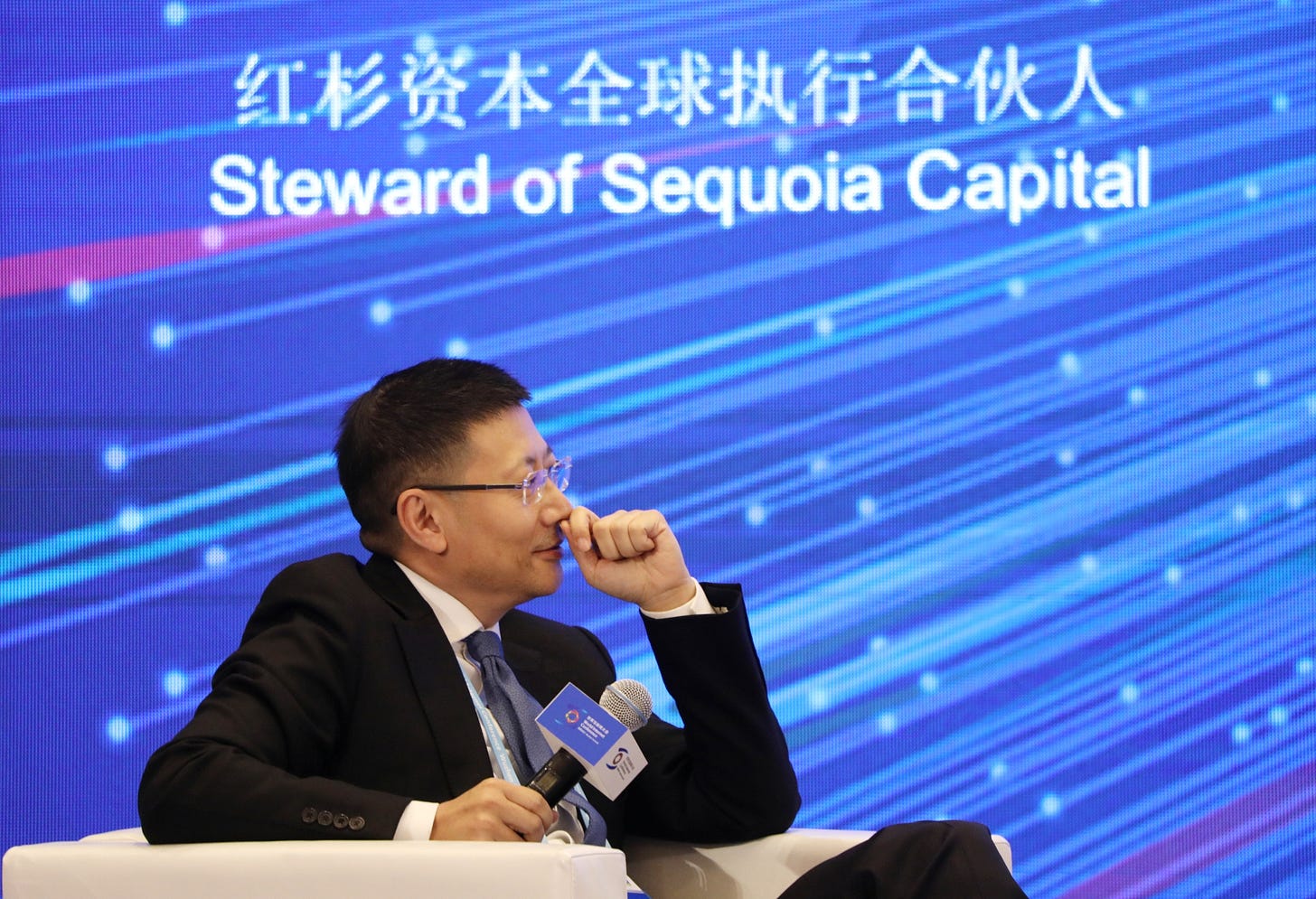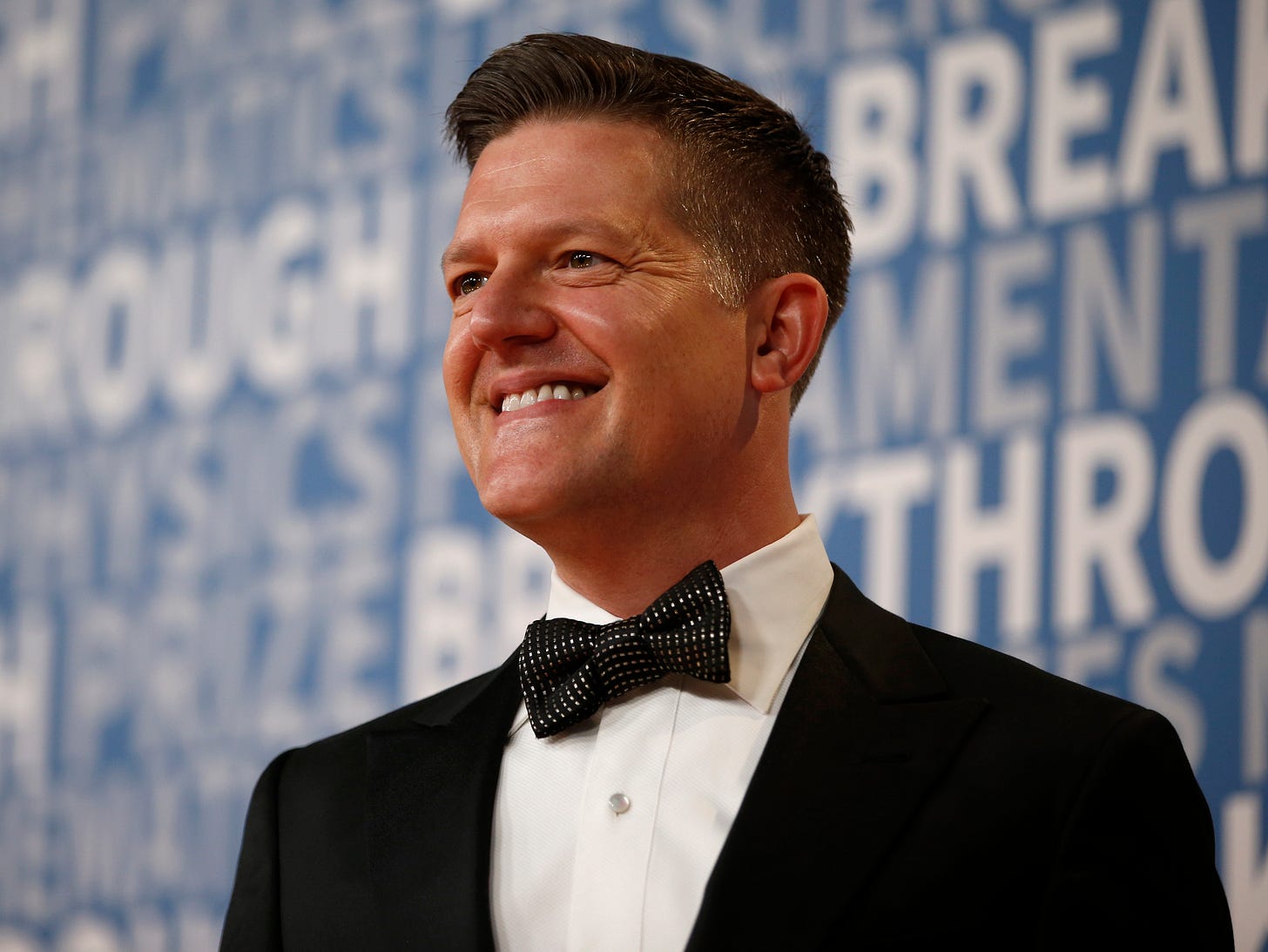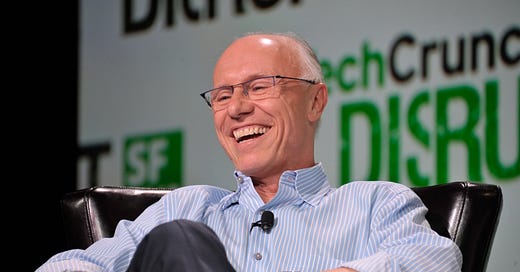Sequoia's Political Paradox
What Doug Leone's Trumpism means for the competition inside Sequoia to replace him
Sequoia Capital was always destined to be the subject of my first newsletter. It’s far and away the most influential and successful venture capital firm in the world. It’s dominant in the United States and China, and it has a growing profile in India. It has a stable of early stage bets that it should be cashing in soon and some astounding late stage investments that have already gone public. Sequoia Capital is like LeBron James. He is at once widely recognized as the greatest basketball player in the game right now, and still doesn’t think he gets the respect he deserves.
So far this year, Sequoia has seen public listings from Unity, Snowflake, Sumo Logic, Berkeley Lights, and Lemonade. Airbnb and DoorDash could list later this year. Sequoia started investing in Stripe in its seed round. Business for Sequoia is going great.
But the firm is interesting right now because Sequoia’s leader, Doug Leone, is a die-hard, Fox News-watching Republican who supports a president whose policies undermine the firm in big and small ways. Leone shares Republican memes to his Facebook page, like one from June that reads in all capital letters: “Since liberal governors are allowing protesters to be smashed together like sardines, it’s obvious that coronavirus was never about saving lives, it was about destroying the Trump economy!” Leone is an avid Trump supporter and someone who believes the meritocracy got him where he is today, I’m told. His fervent Republican support has been earning media attention.
Sequoia’s Michael Moritz’s Democratic donations certainly counterbalance Leone’s Republican political giving. (They are both donating aggressively ahead of the election.) That doesn’t change how problematic Leone’s politics are for the firm in a Silicon Valley where Trump’s politics are considered by many (myself included) to be beyond the pale.
Putting aside Trump’s racist and authoritarian tendencies, how can Sequoia’s leader so viscerally support an anti-China American president when the firm makes so much of its money in China? Leone helped set up Sequoia’s China strategy, but he supports a president who has made attacking China one of his signature issues.
So much of Sequoia’s financial success depends on its ability to get money into and out of China. Neil Shen — an iconic investor in China and one of Sequoia’s stewards — is seen as a candidate to replace Leone whenever he steps aside. Leone’s Republican affinity may have helped the firm navigate Trump’s attack on TikTok, but the long-term hostility toward China will be harder to unwind no matter who wins on Nov. 3.
Now after four years with China as a political football, would Sequoia’s limited partners accept a China-focused venture capitalist running its global operations? Shen’s success would seem to justify a seat at the top. “Neil Shen is probably going to run that firm long-term,” one rival American VC told me. “He's driving immense returns from China.”
The decision as to whether Shen, who is based in Hong Kong, would be elevated to run Sequoia would have major ramifications for the fund and for the relations between two superpowers. For the fund, the question is whether Shen would stick around if he were passed over. His reputation in China is so exemplary that he could easily build his own empire. “The question I’ve always asked, and other people ask is, ‘Why does he stay there?’” one well-connected American tech source said. “By straight returns, he’s the most successful investor in the world. He’s in every important China deal in a big way.” And China’s technology industry has been booming.

Geopolitically, if Shen were named the head of Sequoia, it would be taken as a sign of goodwill between the two countries. But it would also seem to signal a shift in the balance of power between Silicon Valley and the Chinese technology industry. (On paper, local business heads like Shen run their own businesses independently, while the global managing partner oversees the firm’s operations and culture.)
I don’t know if globalism snaps back quickly enough to make room for Shen at the helm of America’s top venture capital firm. Personally, I’d bet on Roelof Botha, the firm’s U.S. leader.
It’s always possible Sequoia tries to split the role or that Shen could stick around under Botha’s leadership. Botha scored only two spots behind Shen on the Midas list this year. It wouldn’t exactly be an insult if Botha were put in charge. (Botha’s politics aren’t as publicly accessible. Recently on Twitter he accused the New York Times of building “an echo chamber catering to the previously held beliefs of its existing audience” as he shared an article about the newspaper’s union demanding “sensitivity readers.” Botha also recently defended his family’s role in South Africa as overseeing a “peaceful transition to democracy rule.”)

It’s not just the China issue where the firm’s politics matter. A Trumpian worldview inhibits the firm’s capacity to recruit women and minority investors. There’s an old guard of venture partners (and my sense is this includes Leone) that believe in a sort of fatalistic meritocracy, where the best talent rises to the top. A younger guard of founders have stopped believing the system works so organically. Sequoia doesn’t have any Black partners and its senior ranks are dominated by men. That puts a lot of unfair pressure on partners like Jess Lee to succeed. I’ve heard the firm is making attempts at recruiting a Black investor, which is long overdue. Given that Sequoia is the top venture firm in the world, it should be ahead, not behind on this issue.
Sequoia’s spokeswoman declined to comment.
This leads into a broader question that’s on my mind ahead of the election:
What could Silicon Valley’s politics look like in a Biden presidency?
I see two possible paths.
On the one hand, there’s a strong desire among a subsection of Silicon Valley to go back to business as usual. “What troubles me the most is the increased polarization of U.S. society,” Botha tweeted earlier this month. “There seems to be scant willingness or tolerance – on either side – for joint engagement to address our problems. How do we transcend this disunity so we can work together to build a better future?”
There are a lot of rich white men who are exhausted by what they might call “woke politics.” You can hear it on Clubhouse. They’d love to get back to building apps without everything having a political lens. And they’d like to return to a world where political ideologies are shrugged off as personal preferences, rather than some sort of Scarlet Letter.
On the other hand, I think there’s a world in which people who supported Trump when he was in power look far worse once he’s out of power. Right now, everyone who depends on powerful people, including the media, has an incentive to treat the President like a valid political actor. Leone’s Trump support right now can be positioned as savvy, rather than deplorable. But should Trump leave office, suddenly, the power the president held goes away. Everyone felt much freer to admit that the Iraq War was a disaster once George W. Bush was a lame duck president. If Biden wins big in an election where college educated voters are largely aligned, I think the billionaire Silicon Valley Republican holdouts could look more contemptible than they already do. I’m told Leone is a nice guy and I believe it. But politics isn’t basketball. The election has consequences, and it matters who the most powerful person at the most powerful venture capital firm is rooting for.
I do also wonder what a post-Trump era (should we be so lucky) looks like in policy and PR shops around Silicon Valley. There’s a reason that former Romney and McCain operatives have done so well in tech. Democrats don’t think they were trying to destroy the country. But it’s not as if Silicon Valley drew a line in the sand on the Bush years. Joel Kaplan, an operative in the Bush administration and during the Florida recount effort, is one of the most influential executives at Facebook.
While plenty of liberal-minded firms and companies will wrestle with the lines of acceptability, some firms are more insulated from criticism than others. Keith Rabois may be insufferable on Twitter, but if you’re a fintech company and he wants to invest, it’s harder to say no. And Founders Fund has already cornered the market on, to put it nicely, unconventional thinkers. Sequoia is fundamentally dependent on its firm-wide brand in a way that I think some younger firms are not.
I don’t think there’s any one partner at Sequoia outside of Shen who feels as vital to a particular sector. The firm is having a lot of success and they’re all excellent at what they do, for sure, but a lot of the credit flows up to the brand the firm has built over decades. “Sequoia is powerful because when they invest in a company,” one unicorn founder said, “suddenly that new company gets all that brand pixie dust.” In a Silicon Valley where employees protest their bosses, will the next generation of founders still see Sequoia the same way if it seems stuck in the past?
I hope not.






Great piece.